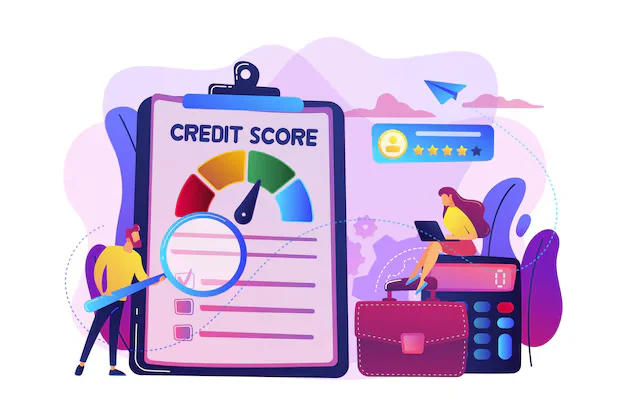6 Tips to be Financially Prudent in Challenging Times
Many people have difficulty handling their finances in good times, so it's no surprise that they struggle even more when the economy is in trouble. In recent years, many people have been forced to work two jobs to make ends meet or take on debt because they don't know how else to manage their money.
This comprehensive guide will discuss tips to be financially prudent and be financially stable in these challenging times, helping you maintain a monthly income that supports your financial objectives. Growing consumerism and cheap credit availability frequently lead to spending on purchases that exceed one's ability to repay.

There are two ways to prevent such a situation: either take a reactive strategy and postpone the purchase until you have saved enough money, or take a more proactive approach and arrange your finances ahead of time so that you always have funds available when a good deal comes your way.
While it may seem logical to take a more proactive approach to financial planning, many people fail because they are ignorant of the simple habits that can help them follow this strategy more efficiently.
Handling funds can be a difficult undertaking, and it is critical to instill sensible financial practices. How often have you asked yourself, "I'm broke by the end of the month?". When handled and planned properly, your finances can help you live a comfortable life without the worry that comes with living paycheck to paycheck.
Financial prudence entails planning ahead of time and necessary adjustments in your financial year plan, investing in areas like mutual funds and stock markets where you may expect great returns, contributing to your long-term goals. It also entails having thorough awareness of your money and how to best increase it.
1. Make a Budget to be Financially Prudent
The best way to ensure financial success and remain financially secure is by crafting a detailed monthly budget that accounts for both fixed expenses and variable expenses. This will allow you to keep track of your income and expenses each month to have no surprises when it's time for payday or bill-paying day.
In addition, you can create invoices for all work completed and send them out every week or so. Generating pay stubs is also helpful in seeing how much money is coming into your household each month from all sources of income.
This will help you get a clear picture of where your monthly expenses are going and which areas need adjusting based on what's happening with the economy. A simple spreadsheet with all the months on one page will work just fine, but if you're feeling ambitious, you can try creating an online budget using free online software.
It may seem daunting at first, but once you've made your budget for the next twelve months, it becomes much easier to put it into practice. You may live within your means by making a budget at the start of each month. Keep to this spending limit and refrain from buying unneeded things.
Save at least one-third of your monthly take-home pay, regardless of how much you earn. Use restraint and ask yourself if you really need to buy that pricey phone or the newest party gowns in order to avoid going overboard with your spending and be financially prudent.
2. Track Your Spending

Once you have established your monthly budget, ensure you spend wisely by tracking your cash flow carefully to avoid common financial mistakes. You'll be able to identify where you're overspending and then cut back on those areas to maintain a healthy balance of monthly income and expenditures, paving the way for financially prudent habits throughout the financial year.
Once you know what's coming into the household, it will also be much easier for you to see if any bills need attention before they go overdue. This is why tracking your spending becomes so essential.
3. Cut Back On Non-Essential Items
If you're not careful, your finances can spiral out of control when the economy is in a slump. One effective method to combat this tendency is by reducing discretionary spending and avoiding payday loans, which are often tempting but undermine financial security. This will help keep you financially stable and make it easier for you to save up money for an emergency fund or other necessary financial goals.
There are many ways that people cut corners when they feel like their budget isn't meeting their needs, but one suggestion would be to practice being more conservative with recreational spending. You and your family can do several things together in the comfort of your own home, such as doing other recreational activities like board games or maybe taking turns cooking dinner each weeknight.
4. Take Care of Your Credit Score and Avoid Debt to be Financially Prudent

Another excellent strategy for staying financially secure is by managing your savings account effectively, taking care of your credit score, and avoiding debt to leverage tax benefits and secure your retirement account. Your credit score affects many different aspects of your life, from the interest rate on loans to whether or not you'll be able to find a job in the future.
During tough times, it's easy to see how people might struggle with their finances, often resorting to borrowing money unwisely, which can delay achieving financially free status. Even new hires receive offers of signing bonuses for taking on more responsibility. This, however, can cause them to suffer from financial difficulties since their expenses increase while their salary does not.
5. Avoid Impulse Shopping - Plan Your Purchases Before You Make Them
Another approach to remain financially independent is by planning your purchases meticulously, avoiding impulse buying to spend wisely, and making the full advantage of festival offers for better deals. Instead, make sure that you plan your purchases before you make them so that there are no surprises when it comes time for the bills. The other side of this is that you should also avoid impulse debt, which often happens when people are desperate for cash.
It can be tempting to use your credit card or take out a loan to cover living expenses, but it's important to remember that these moves, influenced by high interest rates, will only exacerbate your expense management, worsening the financial situation.
When things go bad, making important decisions early on is crucial to envisioning the big picture, especially for younger individuals who have more time to establish healthy finances through strategic investments and earning money with financial goals in mind.
List the big-ticket assets like real estate, in which you hope to invest in the near future, and collaborate with a financial advisor to devise a strategy that enhances your capacity to earn more money and achieve financial prudence. Alternatively, consider what you want your retirement years to be like (yes, even if you're just 22 years old) and begin to plan appropriately.
Make it a priority, for example, to pay off any high-interest credit card debt you may have. Investigate low-risk financial instruments that will allow you to increase at least some of your funds, albeit at a slow pace in the current low-interest-rate climate.
Do not skimp on necessities - medical insurance plans are also asset protection tools - unless you want your savings to be wiped out by healthcare bills.
6. Cut Down on Your Grocery Bill by Buying in Bulk

One strategy to trim your grocery bill—a crucial part of your whole process of financial management—is by buying in bulk, a method that ensures you save money and stabilize your cash flow. This is especially effective for families who have a lot of mouths to feed. If you can purchase items like eggs, meat, and produce from wholesale stores or farmers' markets, this can make it easier on your budget while still giving you access to quality foods.
It's equally important when you opt to buy in bulk that you start saving wisely—whether that means investing in containers with lids to prevent spills or utilizing up purchased items before restocking, ensuring every decimal point in your spending is accounted for. Other ways include freezing some food before it goes bad and finding out if there are any discounts available because someone else bought too much at one time.
Right now, we're all suffering the effects of inflation, and it's most obvious at the grocery store. Grocery costs are up roughly 12% from last year, with certain categories even higher.Prices for fundamental foods such as eggs, beef, and milk are much higher.
Even the most savvy shopper will notice that those dollars add up. A 12% price rise means that if your weekly shopping budget is $500, it will now be stretched to $560.
There are, however, ways to save money on groceries while still preparing nutritious meals. Try some of these techniques to save money at the grocery store when prices are rising due to inflation.
7. Diversify Your Sources of Income

For many striving for financial independence, a standard 9 to 5 job might not cut it. This means looking beyond traditional employment to enhance your income potential. Financial gurus often suggest establishing up to five different income sources. If you already hold a full-time job, you’re off to a good start with one source. Now, it's time to explore four additional avenues!
There are two primary ways to generate extra income. The first is active income, where you exchange your time for money. This method is straightforward and can be quickly initiated through side gigs such as freelance writing, rideshare driving, or graphic design on platforms like Fiverr.com.
The second method involves passive income, where you invest effort upfront to reap ongoing benefits later. This might include selling digital products like e-books or courses, engaging in affiliate marketing, or investing in the stock market.
Evaluate what suits your lifestyle and skills, and begin taking incremental steps toward developing a secondary revenue stream.
8. Continuously Advance Your Career
Boosting your earnings while maintaining or reducing your expenditures is a rapid strategy to achieve financial freedom. This requires an ongoing effort to progress in your career or business.
For those employed, this could mean acquiring new skills or enhancing your existing capabilities to increase your value to employers. If you run your own business, focus on implementing growth strategies to elevate your operation to new heights.
If you’ve been passive about your career growth, now might be the perfect time to actively manage your career trajectory. By doing so, you’ll likely see an increase in your income, propelling you closer to your goal of financial independence.

